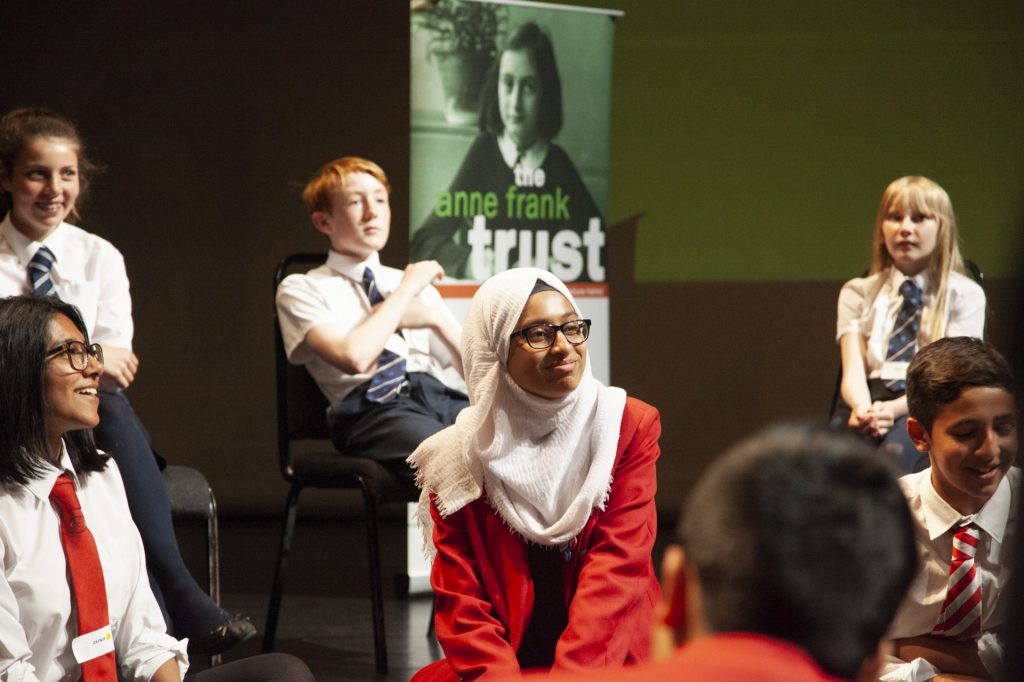A report authored by two members of the School of Psychology has found that young people participating in education programmes delivered by the Anne Frank Trust UK benefit from ‘significant and long-lasting anti-prejudice outcomes’.
The report, titled ‘Building Commonality’, was written by Postgraduate Researcher Katie Goodbun, alongside Professor Dominic Abrams. Their observations were drawn from the charity’s anti-bullying, peer education and anti-extremism workshops.
Amongst their findings, they report that 87.6% of young participants (aged 11-16) achieved significant progress in their:
- knowledge about prejudice
- attitudes towards stereotypes
- confidence to report prejudice-related bullying
- feelings of empathy towards others
The report also reveals that, following their participation in the programmes, 77.1% of young people show more positive attitudes and 76.1% have increased feelings of commonality to those different from themselves. Of those young people who started out with little or no understanding of extremism, 94.6% recognised that prejudice is dangerous and can cause extremism.
Professor Abrams said: ‘This evidence shows that the Trust’s approach to challenging prejudice, based on sound theory and rigorous evidence, is consistently making a substantial difference where it matters. It shows that real progress is possible, and the importance of that for young people and for society is unquestionable.’
Lauren, 16, an Anne Frank Young Ambassador from Tyneside, said: ‘I used to believe that my voice was meaningless, I lacked confidence in my ability to change the world, to be heard. Now, thanks to Anne’s story, I am determined to be heard. I have been inspired to make positive changes in my life and to stand up for what I believe in. I don’t tolerate discrimination, where I would have walked away before I now stand up without hesitation.’
Tim Robertson, Chief Executive of the Anne Frank Trust UK said: ‘We know the coronavirus has made inequality worse. We know from #BlackLivesMatter that racism continues to shame our society. The question is: what can we do about it? This research shows that the Anne Frank Trust has part of the solution. We go into schools with the story of a teenager who, in the face of extreme prejudice, told her own story so others would understand. It makes a powerful difference to young people’s attitudes and values. It has a proven impact on prejudice.’
The Department for Education funded ‘Free to Be Programme’ delivered by the Anne Frank Trust UK helps schools and colleges build relationships between pupils, boost their resilience, and continue to tackle bullying both in person and online.

